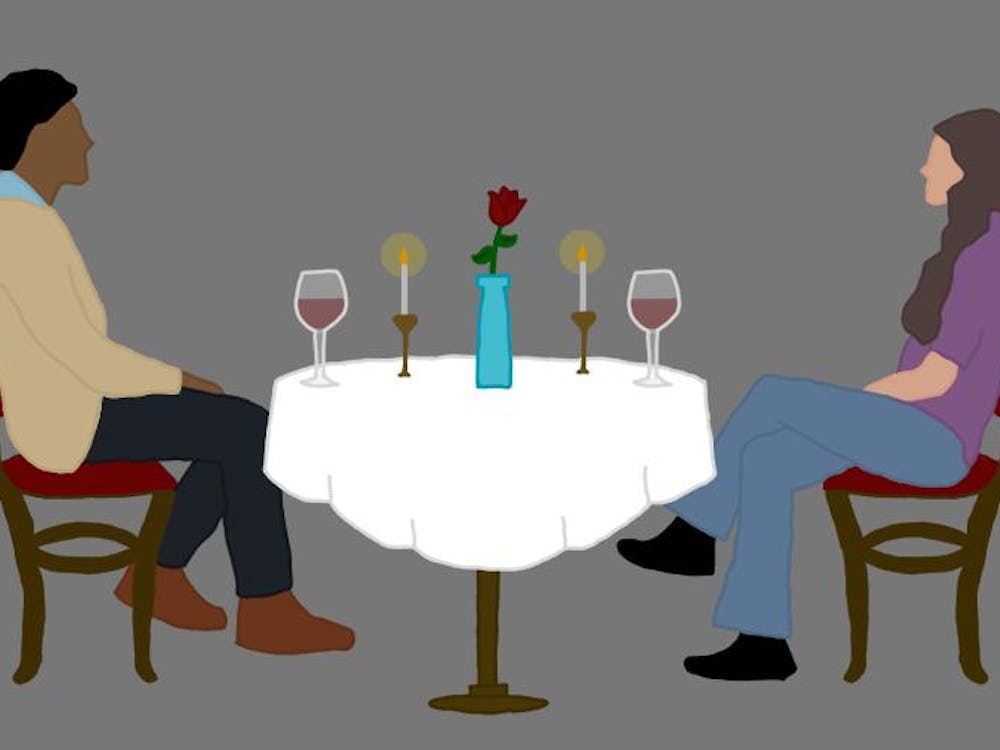For many first-year University students, the year went like this: Blink. Fall semester rushed by. A whirlwind of new faces, classes large and small, activities, papers, parties and dorm life -- and the year was half over.
Blink. Spring semester came to a close. Classes wrapped up and students applauded professors; blue books were bought and families arrived to load suitcases into overflowing minivans.
A car or plane or train ride later, just-finished first years found themselves living at home again.
Among them were College students Sonny Duong, who zipped back home to University student mega-supplier Northern Virginia; Steven Herzog, who trekked out of state to his home in Myrtle Beach, South Carolina; and Mana Anandsonkgit, whose return journey took him home to Bangkok, Thailand.
Now that they've been home for over a month, the students have reflected on the experience of being freshly minted college students living once again in the place they grew up.
All three students said they were "excited" to return home but found that being away from school soon made them appreciate the University on a whole new level.
"Shortly after I got back [from the University], I realized what that cliché meant, 'home is where the heart is,'" Anandsongkit wrote in an E-mail. "I now feel a sense of home in U.Va. as well. Part of me felt amazing to be back, the other parts felt like being at my other home -- U.Va., that is."
Herzog also expressed mixed feelings.
"At first [summer] was a lot of fun, but then it becomes boring and routine," he said. "I kind of want to go back to school, but at the same time I like being at home."
In the comfort of their own homes, the students have seen how much college has (or hasn't) changed them.
"Coming back from college, I have gained a greater sense of self -- that is, independence," Anandsongkit said. Explaining that many families in Thailand, including his, have a maid who is very much a member the family, he went on to say, "I no longer feel the need for maids -- as spoilt as that may sound."
Duong doesn't have a maid at home, but he has gained independence in his own way.
"I think I'm more responsible," he said. "I do my own laundry now."
Now that he has mastered the washer and dryer, do Duong's parents treat him differently?
Not particularly, he said, noting that his parents have never been strict, so being back at home isn't an enormous departure from his University lifestyle. Although Duong said he was "kind of disappointed to leave and lose all the freedom" he had at school, like being able to go out every night, he's currently not bound by a curfew.
Herzog also said his freedom is limited only mildly at home.
"I definitely go out more than I did before [college]," he said. "I have pretty much all the freedom I want."
Still, Herzog said, his mother makes it clear when she's unhappy with his behavior, even if she does not set explicit boundaries. Recently he came home "at 3 a.m. with a bottle of vodka in my hands," and his mother was at the door to greet him. Suffice it to say, she wasn't full of good cheer.
"I feel like I can do what I want, but I have to hear about it from her," Herzog said.
He elaborated: "I get in more trouble for leaving my clothes on the floor" than for staying out late.
Like Herzog, Anandsongkit has noticed that his parents don't treat him much differently than they did during his pre-college days.
Anandsongkit's responsibilities around the house, however, have changed. Although he has lived abroad before, he said he knew that returning as a college student would be a different story.
"I knew I had to start being productive, in the sense that I have to start working and indulging myself in the lifestyle of a businessman in the 'real world' -- that is, working full-time," he said.
Herzog, meanwhile, has other plans for his first summer back from college.
"I go to the beach during the day and go lift weights and play poker and go out and drink," he said.
Herzog said he does most of his socializing with high school buddies, not University friends, though he noted that planning around each other's schedules can be tricky.
"I'm the only one of my friends who isn't working, so I have lots of time and I'm always calling people," he said. "It's hard to make time to hang out with people on a regular basis."
Duong said he has also been spending much more time with his high school friends than fellow Wahoos -- despite the fact that he lives in Northern Virginia, near many other University students.
He said that he has had "some visits" with University friends, but mostly has just been catching up via cell phone and talking online.
Unlike Duong and Herzog, who have been able to at least give University friends a ring, Anandsongkit's spot on the globe makes it hardto keep up contact at all.
"To be honest, the time zones are just too different to be staying in touch like we did while in college," Anandsongkit said. "I wake up when they are about to sleep, and vice versa. It is quite fascinating actually, come to think of it; I am 12 hours into the future for them."
Anandsongkit acknowledged that, of course, keeping in touch with college friends would be much easier if he lived in the United States.
"I could quite possibly still be meeting them on weekends," he said. "In this case, it would quite
impractical to fly over for the weekend to hang out -- or at least, one would think."






